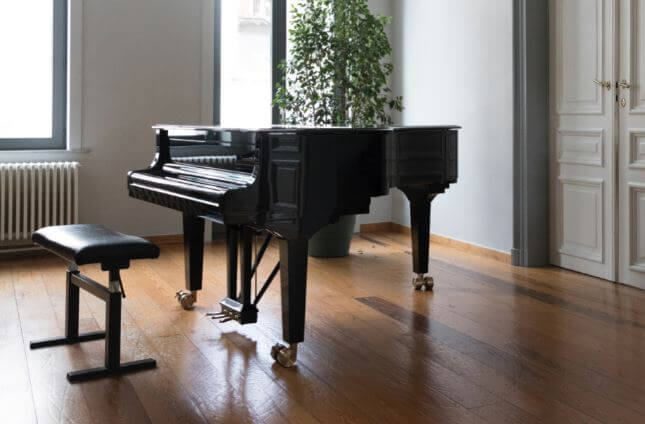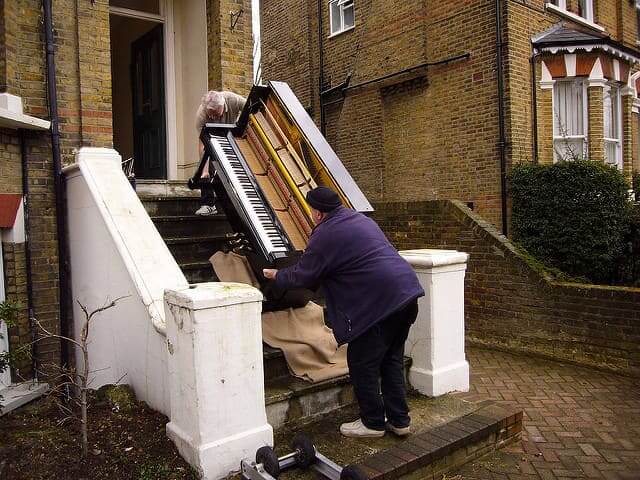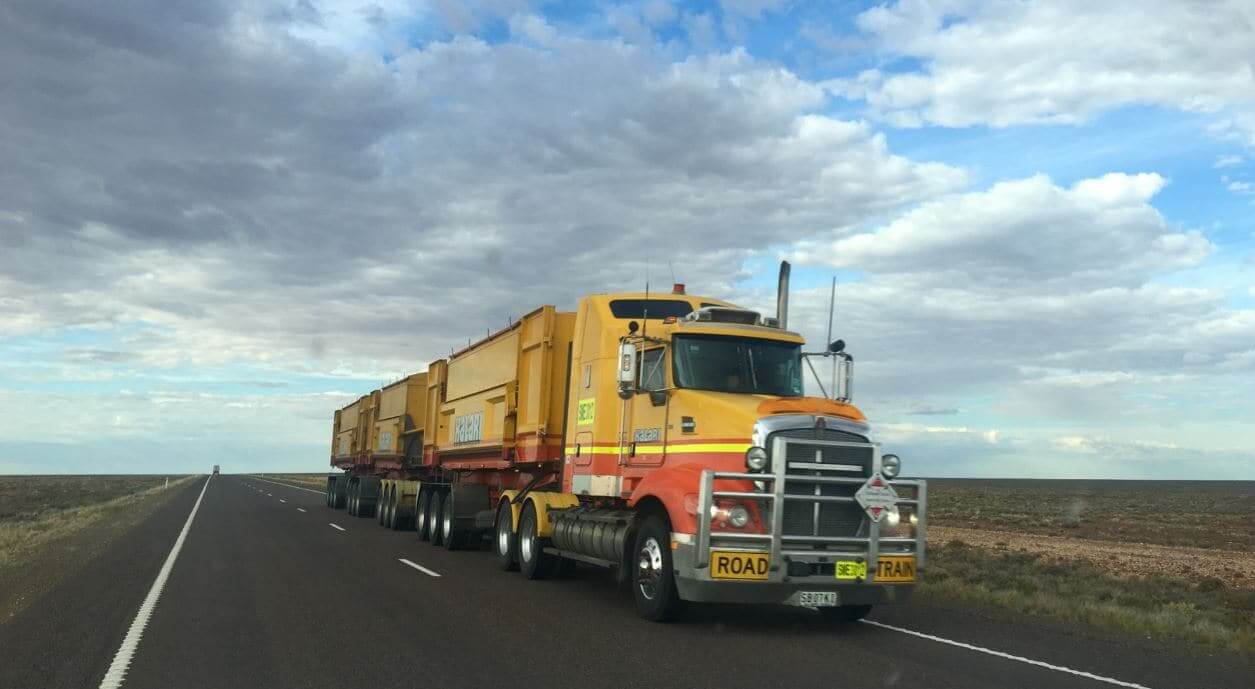Owning a piano allows you to fill your home with beautiful music at a moment’s notice, but come moving time, it can suddenly fill your mind with stress about how you’re going to get that hulking instrument from point A to point B. Pianos are a piece of property that are completely unlike any other item in your home, and unless you’re some sort of piano-moving-expert, you probably don’t know much about how to move the thing.
You and a couple friends can tackle a hefty object or two, but even the smallest pianos weigh over 300 pounds. With your beautiful instrument sitting prominently in your home you may be wondering if you should hire movers to move your piano or do it yourself. Let’s get this sorted out!

Protecting your piano is vital during your move
First things First
No matter who ends up moving the piano there are a few steps necessary to start a successful piano move.
- Before your piano moves an inch, make sure to close the piano lid, and secure it with its latch. Close the key cover as well.
- If the lid and keys can’t be locked, DO NOT USE TAPE. Any sort of adhesive could remove the finish on your instrument.
- Use padded blankets to cover and protect your piano from bumps, scratches and scrapes.
Moving a piano is a daunting task. If you are concerned about taking on the challenge, consider professional help.
Hiring a Piano Moving Company
There are a lot of separate things to remember when moving a piano. Just one small bump or slip could end up costing you thousands of dollars in repairs. Strongly consider using a piano moving company if you own a grand piano or need to move your piano up or down a flight of stairs. In the end your DIY piano move could end up costing you more than it would have been to hire movers in the first place. While it will be an added cost to hire professional piano movers, it will be worth it for the peace of mind. Hiring professional movers means you can sit back assured that your mover has the needed equipment and experience to safely get your piano from your old home to your new one.

Professional Piano Movers have the tools needed to make sure your piano arrives at your new home safely
Here are some important things to consider when working with a piano moving company:
- Do your research when selecting a piano mover. You can look on the internet and ask others for advice who have had pianos moved.
- Put in a call, send a Facebook message or fire off a tweet to your local piano or music stores. They should be able to provide suggestions on reputable piano movers they trust.
- Always verify your piano mover’s insurance. Movers in most states are legally required to carry insurance. Even in a state like Arizona, where insurance isn’t a requirement, you should still consider movers with insurance. Regardless of your location, don’t accept a simple “yes” when you ask about insurance; make sure the movers can show you proof of their policy.
- You may be able to have your piano covered during the move under your homeowners’ insurance as well. A quick call to your insurance agent will inform you of your options there.
Moving a Piano Yourself
Getting your piano from point A to point B is a tricky process that requires extreme care. Moving a piano by yourself requires more work and preparation than a typical DIY move. Think of moving a piano like moving an elephant, made of glass, with hundreds of crystals inside of it. Such a delicate instrument is worthy of more than being tossed in the back of a pickup truck and hoping for the best. Here are some important things to consider when you’re moving your own piano.
- When you begin to move your piano make sure to keep the instrument upright. It might be hard to believe, but there is a total of 18 tons of pressure being exerted on the steel piano strings! Changing the piano’s orientation could cause one of them to catastrophically snap.
- If possible, obtain a piano dolly to move your piano. Placed under the piano’s center of mass—this tool will keep your piano upright and level throughout the entire move.
- Wear protective gloves to make sure you don’t lose your grip.
- Everybody loves a good piano solo, but no one wins in a solo piano move gone sideways. Enlist some of your strongest friends who will be able to delicately lift and navigate your home to get your piano safely to its new location.
- If you have carpeted floors, make sure that you do not try and push your piano to a different location. This can end up snapping one of the legs off. Make sure to lift the piano completely off the ground before moving it.
- If you are moving your piano on hardwood floors, make sure not to scratch them by completely lifting the piano off the ground before moving it. If you must slide it use a dolly, caster cups, or a moving pad and blankets to reduce damage.

Professionals can assure that your piano is safe after traveling long distances
Cost of Moving a Piano
So just how much is it going to cost you to safely get your piano into its new home? The cost of moving a piano will depend on the different variables going into the move such as the size of the piano, or if it needs to be taken up or down a flight of stairs. If you are moving a small upright piano across town it could cost as little as $100. Moving a grand piano to a new state could cost around $1,000. Even if you want to move your piano on your own there are still some necessary tools that moving companies own that you would need to include:
- A 4-wheel piano moving dolly – $125
- A hump strap – $25
- A locking piano belt – $25
- A piano skidboard – $125
- Moving pads and blankets – $50
- Packing Tape – $10
Going the Distance
The cost of moving your piano will likely increase with your distance. If you are just moving your piano across town, most major cities and towns will have one or more companies who are able to handle the move in the range of $100 to $500. If your move is relatively long-distance, it could cost anywhere from $400 to $1,000.

Before you know it, your piano will be in your new home filling the house with music
Your Piano’s New Home
Once you’ve safely arrived at your new home, you will want to move your piano to a room that does not have too much humidity and will not experience temperature fluctuations, as they can cause the piano to become warped and out of tune. Being too close a fireplace, under a vent, or receiving sunlight from being next to a window could negatively affect your piano. You will also want to have your instrument tuned once it is securely in its new place. The delicate workings inside may have shifted while in transit.



